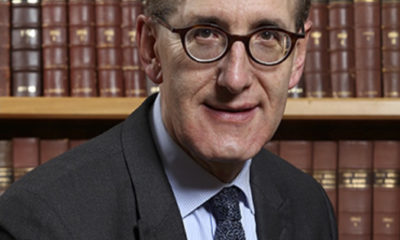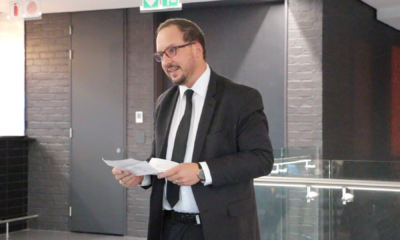
OpEds

SARS determined to squeeze emigrating taxpayers further
Large numbers of South Africans continue to seek greener pastures abroad. According to research from RMB, more than 100 000 South Africans emigrated over the past five years. This trend is even more pronounced among high-net-worth individuals.
The latest research from New World Wealth shows that 10% of South Africa’s dollar millionaires (more than 4 200) emigrated from South Africa over the past decade.
Financial and tax considerations are often cited as one of the major reasons for leaving. Recognising this threat to the South African tax base, the government has become increasingly focused on squeezing all the tax revenue it can from these departing taxpayers.
This was highlighted again in last week’s National Budget by Finance Minister Enoch Godongwana, in which he reaffirmed, in spite of the legal obstacles, his commitment to imposing a “exit charge” on retirement savings when ceasing to be a South African tax resident.
Current retirement tax loophole
There is a major loophole in the taxation of retirement savings on emigration. South Africa, in a handful of important tax treaties including one with Israel, has forfeited its rights to tax South African generated retirement savings once a taxpayer ceases to be a South African tax resident.
For people making aliya, formal retirement savings constitute a major component of their wealth. This loophole provides a significant tax saving for those emigrating to Israel.
Early withdrawals from retirement savings before retirement age (under 55) are generally subject to a punitive tax rate. As an example, if one has a R5 million pension and is younger than 55, early withdrawal would generally be subject to tax at an average rate of 33% or R1 647 000. However, If one ceases to be a South African tax resident and takes advantage of the tax treaty with Israel, one could effectively structure a tax free pay-out.
An additional benefit of emigration is that it allows for the full lump-sum withdrawal of retirement savings. As of last year, the government has, in most cases other than emigration, limited lump-sum withdrawals on retirement to only one third of total savings and requires an annuity to be taken out on the bulk.
To counter the loss to the fiscus in these cases, the government proposed already in 2021 to impose a tax on the value of a taxpayer’s retirement funds on the day before that taxpayer ceases to be a South African tax resident, effectively imposing an additional exit charge. This proposal was met with fierce opposition.
The government was begrudgingly forced to withdraw this proposed additional tax last year as it was at odds with some of South Africa’s international tax treaty obligations.
In spite of this setback, the government is still determined to close this loophole. In its 2022 Budget Review last week, the finance minister reaffirmed his commitment to imposing this additional tax as soon as possible, and announced that in order to facilitate it, he would take the unprecedented step of renegotiating the relevant international tax treaties.
What should people do?
International research has shown that a surprisingly large number of former South Africans haven’t cashed out their retirement savings.
It’s advisable that those ex-South African in jurisdictions with favourable tax treaties such as Israel should withdraw their retirement savings as soon as possible before any changes come into effect. This can be a complicated process and requires, amongst other things, that your tax residency status has been formally changed to non-resident with the South African Revenue Service (SARS).
For people considering making aliya, it’s important to understand how to take advantage of the loophole. They should obtain professional advice before withdrawing their funds.
The type of retirement savings vehicle, your age, and when you emigrate, all play a role and can have a material effect on the outcome. Too often, those looking to emigrate make hasty decisions without proper advice and structuring and lose out on this tax saving.
- Michael Kransdorff is a Harvard educated international tax practitioner, and Laura Sassoon is a chartered accountant and former senior lecturer at the University of the Witwatersrand. They run the Institute for International Tax and Finance.











Ryno Viljoen
March 4, 2022 at 9:12 am
Great article, not an easy process, however, but doable. Agree that one should not wait but jump at the opportunity while it exists.
Have helped many Saffas with this, happy to help.